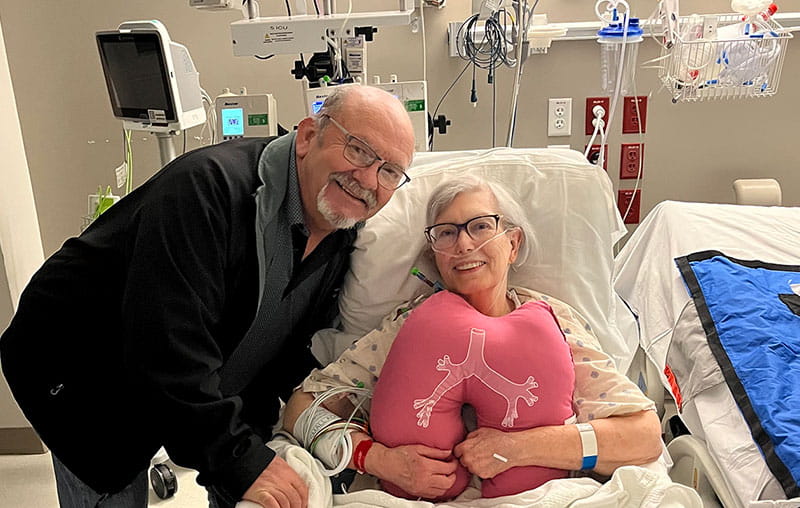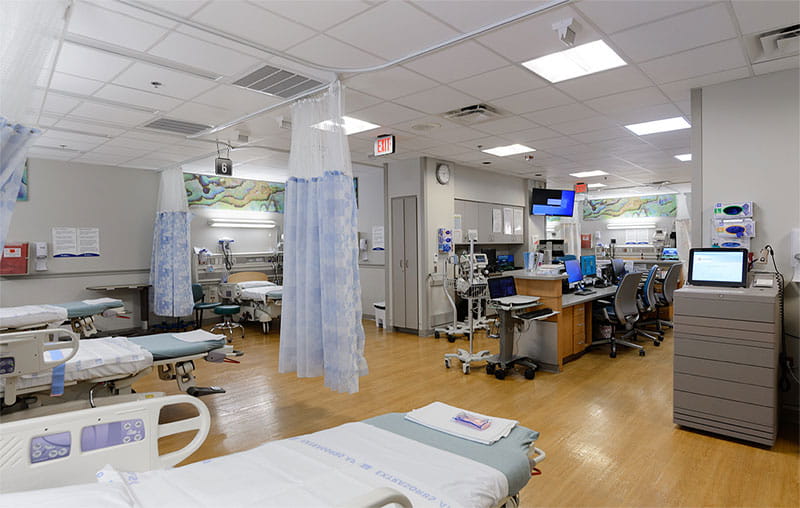More than 100,000 people are waiting for a lifesaving transplant. Many Americans seek to fill that gap by registering their wishes to donate organs when they sign up or renew their driver license, or when presented with other opportunities. False information, however, poses a challenge. It results in some potential donors backing away.
Jennifer Milton is chief administrator for University Health Transplant Institute, and national chair for Donate Life America. She says every donor can save lives so it’s important to set the record straight. Milton dispelled some of the common myths about organ donation in a conversation with HealthFocus SA.
More Than 100,000 People Are Waiting for a Lifesaving Transplant. What Is the Main Reason People Don’t Register To Become Organ Donors?
Milton: The number one way Americans register to donate organs is when they receive or renew their driver’s license. Renewing only happens about once every four years in Texas, so it doesn’t give you frequent opportunities to say “yes” to donation.
That’s why transplant organizations are trying to reach potential donors in others ways. Texas recently began allowing you to register as a donor when you get a hunting or fishing license. Since 2015 you’ve also been able sign up as a donor when you activate the health app on your iPhone. Remarkably, over 5,000 people a day register their wishes that way.
Myth #1: If I Register To Donate My Organs, Emergency Medical Teams Won’t Try as Hard To Save My Life.
Milton: When you arrive at a hospital or doctor’s office or emergency room, all efforts will be made to save your life. It’s not until after your life can’t be saved that anyone would even check if you were a registered organ donor or begin that conversation with your family.
Myth #2: Rich and Famous People Go to the Top of the List When They Need a Donor Organ.
Milton: The way the waiting list works is the patient gets placed on the waiting list and they include their blood type, their height and weight. Those are factors that are important for how an organ is matched with an individual.
Your income or celebrity status aren’t entered into the national waiting list, and there is just a single waiting list. Everyone on the country who’s on a waiting list is just registered through one site.
Myth #3: You Can’t Have an Open Casket Funeral if You’ve Been an Organ Donor.
Milton: Individuals who’ve been corneal donors, tissue donors and organ donors, their families are still able to have an open casket funeral and a viewing. The process to recover donated organs, eyes and tissues is done in a surgical, dignified manner and it doesn’t prohibit the viewing.
Myth #4: I Cannot Become Pregnant and Have a Child if I've Donated an Organ.
Milton: We have many living donors who have donated kidneys or a portion of their liver to save someone’s life, and they have successfully had children after donation. There’s a short period when a living donor is immediately recovering from a living donation that we would not encourage them to get pregnant, but there is no ramification or prohibition from them having a child after living donation.
Myth #5: Living Organ Donors Have To Be Family Members.
Milton: You don’t have to be a family member to be a living donor. You don’t even have to have the same blood type anymore. We’re really now, thank goodness, only looking for a person who’s healthy and able to be an organ donor. From there, if we find that they’re not a suitable blood type match, then we line them up with another pair who might have the same incompatibilities, and we can do a paired exchange.
Myth #6: Many Religions Forbid Organ Donation.
Milton: All major religions in the United States support organ donation. None oppose it.
Myth #7: Only Young and Healthy People Can Be Donors.
Milton: For becoming an organ, eye or tissue donor, there is no upper age limit. That decision is made at the time someone passes away based on their medical condition. For living donation, we will allow anyone of any age to be tested, but in general to go through living donation, most of our living donors are under the age of 70 and over the age of 18.
Learn More About the University Health Transplant Institute
Register to donate or become a living donor. Learn more on our website.




